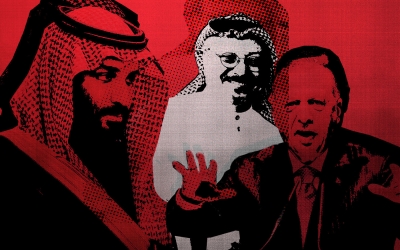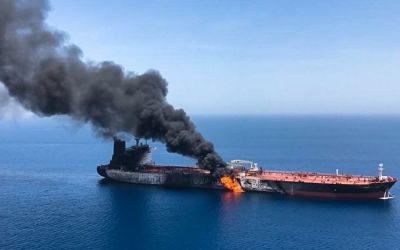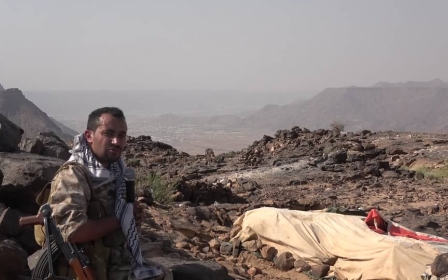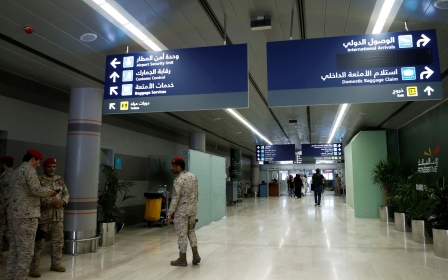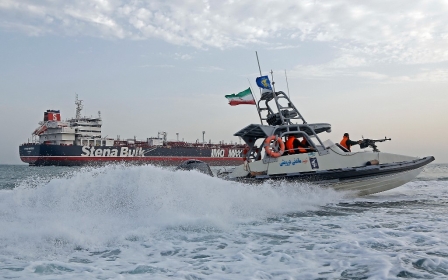Emirati report criticises Saudi reaction to Houthi drone attacks
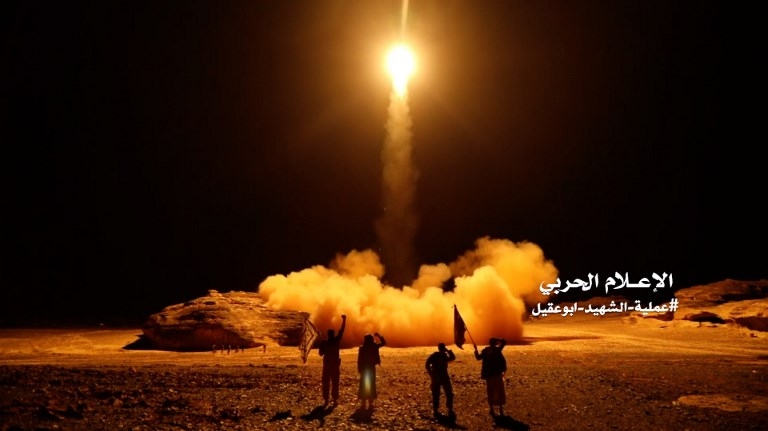
A confidential report compiled for the Emirati leadership criticises UAE ally Saudi Arabia’s reaction to attacks on oil tankers and installations in the Gulf.
It says the Saudi media was too quick to point the finger of blame on Yemen’s Iranian-backed Houthi movement, a sign it says of “unprofessionalism”.
The document, seen by Middle East Eye, also criticises Saudi Energy Minister Khalid al-Falih for giving detailed descriptions of the attacks to the media.
The report contrasts Riyadh’s panicked response to the attack on four tankers off the port of Fujairah on 12 May to the Emirati one.
It says the Emirati foreign ministry did not pin responsibility on any side, neither did it point to Iran as the party behind the attacks.
“The Emirati position emphasised the importance of completing investigations before taking any decision,” the report says. “The Emiratis were careful not to give the Houthis any credit that may enhance their international status.”
This was the protocol that the UAE adopts in times of “serious attacks”, and the report goes on to acknowledge a Houthi drone attack on Abu Dhabi airport which at the time the UAE officially denied.
“This is a protocol which the Emiratis follow in time of serious attacks, such as the one that targeted Abu Dhabi airport (and claimed by the Houthis). It left the door open for the investigation to implicate Iran through evidence in these attacks,” the report reads.
“Instead the energy minister, Khalid al-Falih, gave a detailed description of the energy installations targeted, the attacker, the weapons used and the consequences of these attacks on the global energy markets - details that could have been delayed until the report was presented to the UN Security Council.”
The intelligence report is one of a monthly series written by the Emirates Policy Centre, a think tank with close links to the Emirati government and security services.
Entitled “Monthly Report on Saudi Arabia, Issue 24, May 2019”, the report is of limited circulation and intended for the top Emirati leadership. It does not appear on the think tank’s website. A copy has been obtained by Middle East Eye.
MEE contacted the Emirates Policy Centre for comment, with no reply by the time of publication.
Saudi defensive weaknesses
The report also reveals critical Saudi defence weaknesses to the weaponised drones used by the Houthis.
It reports that from January to May there were 155 such attacks against Saudi targets in Yemen and throughout the Gulf, a much higher figure than previously admitted.
“The attack on the Lahj Military Base demonstrates a weakness in Saudi air defences and the lack of capacity in electronic war if we take into account that these drones are basic and are not launched on tarmac,” the report says.
'The attack on the Lahj Military Base demonstrates a weakness in Saudi air defences and the lack of capacity in electronic war'
- Emirates Policy Centre
According to the report, the Saudis launched an air attack on the caves in Yemen where the drones were stored, but that failed.
“Air defences such as the Patriot are not capable of spotting these drones because the systems are designed to intercept long and medium range Scud missiles.”
Najran airport has been hit repeatedly by Houthi drones despite being protected by a Patriot battery, the report reveals.
The success of the Houthi weaponised drone attacks is also apparently affecting the morale of Saudi soldiers stationed on the kingdom’s southern border.
On Saturday, the Houthis demonstrated their reach in attacking a target well beyond Yemen’s borders.
Ten drones struck a Saudi Aramco gas liquefaction plant near the border with the UAE. The plant at Shaybah is more than 900km away from Houthi-controlled territory in northwestern Yemen.
A Houthi military spokesman said the Shaybah offensive was the “biggest attack in the depths” of the kingdom.
“The drone operation today is an important warning to the Emirates,” said the Houthis’ leader, Abdel-Malek al-Houthi, in comments tweeted by a pro-Iranian news website, Union News.
The Emirati report also notes how dependent the Saudis were on the United States’ “confused” policy with Iran.
It reveals that media circles at the Saudi royal court “followed with keen interest” an analysis produced by Stephen Walt, professor of international affairs at Harvard University.
Walt noted that US goals towards Iran swung between abandoning its regional allies and regime change in Iran.
“Walt’s analysis revealed the consequences of the kingdom’s reliance on confused American policy toward Iran with no clear policy with defined aims, and tools that demonstrate the American position,” the report says.
Middle East Eye propose une couverture et une analyse indépendantes et incomparables du Moyen-Orient, de l’Afrique du Nord et d’autres régions du monde. Pour en savoir plus sur la reprise de ce contenu et les frais qui s’appliquent, veuillez remplir ce formulaire [en anglais]. Pour en savoir plus sur MEE, cliquez ici [en anglais].


